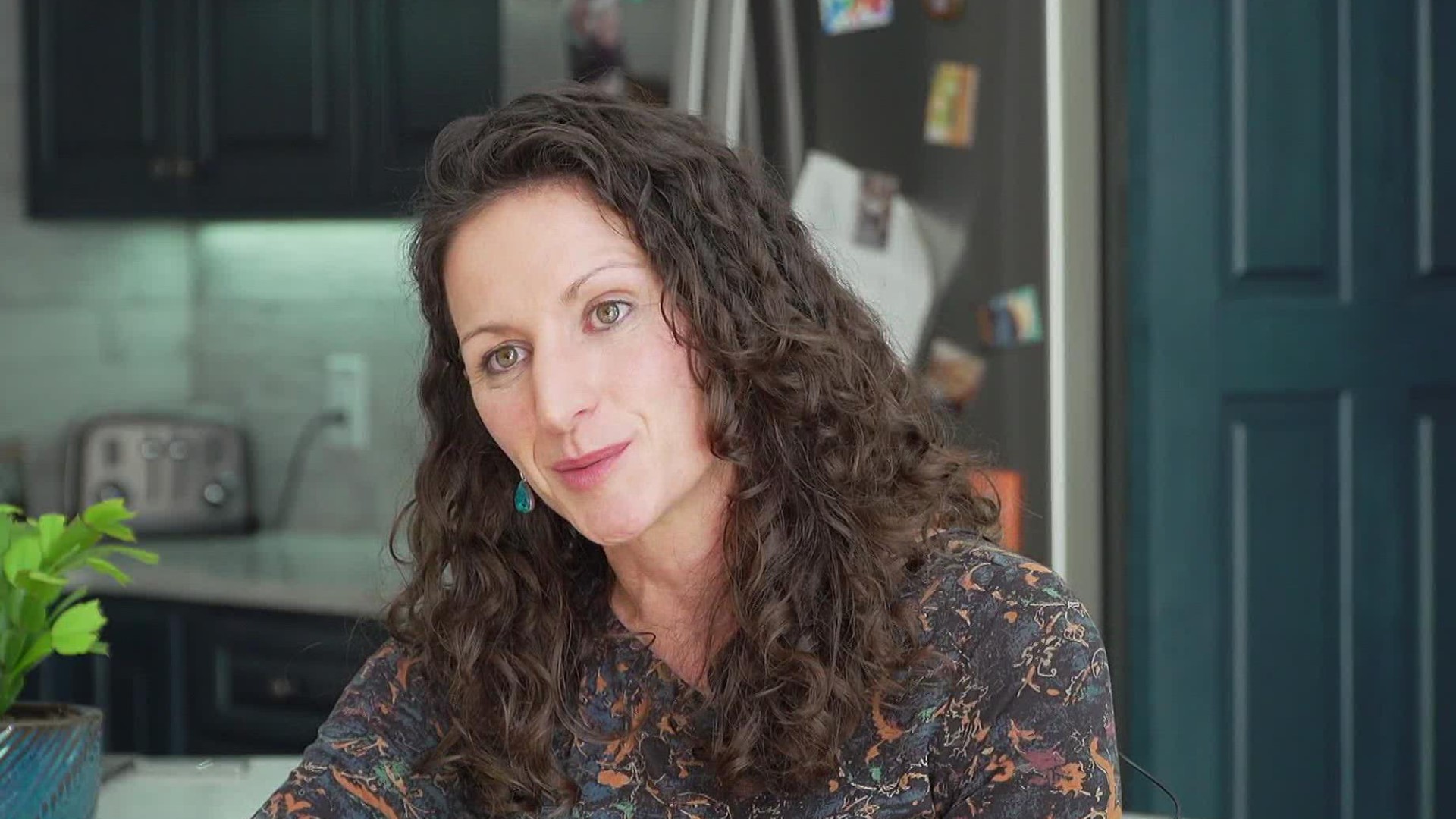INDIANAPOLIS — Federal data shows that for the past several years, more Indiana residents have been seeking out-of-state abortions. The number of people crossing into Illinois for abortion access increased fivefold over a nine-year span.
Back in 2017, Jess Steinberg traveled to Florida to have an abortion to avoid Indiana restrictions. She’s worried lawmakers are poised to impose more hurdles for patients.
“To make what is already a very difficult decision that much harder is disheartening,” Steinberg said.
She got pregnant despite using an IUD for birth control. The news was unwelcome and scary.
“I have a condition that makes it not only dangerous for me to give birth, at some point they actually said I should not have kids,” Steinberg said.
Unfortunately, 12 weeks into her pregnancy, doctors told her there was a problem. The fetus had Trisomy 13, also known as Patau syndrome. Babies born with the chromosomal condition usually die within the first days or weeks of life. Some cases are worse than others.
She said doctors told her, "They thought it was something incompatible with life.”
The same year she made her decision, an additional 2,850 out-of-state abortions were reported to the CDC. Most people went to Illinois, others traveled to Kentucky, Michigan, and Ohio. We don’t know how many Hoosiers went to Florida like Steinberg. That state and many others either didn’t provide that information to the federal government, or it was not reportable according to the CDC. This means the number of Hoosiers seeing abortions elsewhere could be even higher.
It’s not just the number of individuals going up. The percentage of resident abortions happening out of state also increased. In 2010, the CDC report showed 1,421 Indiana residents received an abortion out of state which was about 13% of all abortions involving Hoosiers. The number of people seeking an abortion nearly doubled in 2019. Out-of-state abortions made up 28% of total abortions attributed to Indiana residents that year.
Indiana University researcher Dr. Tracey Wilkinson said many people go out of state because Indiana laws are so strict.
“Every year, the Indiana statehouse passes additional restrictions on abortion access,” Wilkinson said. “This has been happening for years.”
She said each new law “chips” away access to abortion care.
Wilkinson was part of a survey of 428 abortion-seeking Hoosiers. It was conducted between June 2021 to May 2022 and showed 33% of participants who got an abortion left Indiana.
Steinberg knows she was “lucky” to have the resources to leave Indiana. However, she’s also very clear the decision wasn’t easy. Her first pregnancy let her know she wanted children.
"I wanted those kids to be happy and not be suffering upon their arrival in the world,” she said.
Abortion was and still is legal in Indiana up to 20 weeks for most people. She could have had the abortion closer to home, but reports Florida was closer to family and had fewer restrictions.
She specifically wanted to avoid having to make multiple appointments, review another ultrasound and discuss perinatal hospice. Some of those rules were part of a broad abortion law passed by lawmakers in 2016.
“I knew that there was a fetus there,” she said. “I didn’t need to see it again and the idea of having to talk in-depth about how to help ... how to help them die comfortably, if they arrived breathing, I really couldn’t imagine having to have that conversation.”
In Florida, she found supportive medical staff and family support.
“There’s no world in which this is an easy decision,” she said. “No one makes this decision easily.”
Wilkinson fears the trend of women, girls and other pregnant people traveling across state lines will surge if a proposed abortion ban passes the state legislature. People with resources like Steinberg will find a way to get care, but low-income families will face more obstacles.
"I work in a clinic and if I told my patient, 'You need to get to Illinois tomorrow with $500 in cash in your pocket,' they would look at me like I had asked them to get to the moon,” Wilkinson said.
RELATED: Doctors, advocates concerned for rape victims as lawmakers further restrict abortion ban bill
Anti-abortion activists believe making abortion harder is the point of this legislation. Many in the movement are calling on lawmakers to pass an all-out ban with zero exceptions. The goal is to eliminate abortions.
“Some of this is about empathy and imagining the circumstances that you yourself don’t face, but others might,” Steinberg said. “And some of it is practical. If you want to end abortions, it’s not clear that this is the way to do it.”
Opponents of the law say sex education would help reduce abortions. Wilkinson and Steinberg argue restrictions will just make it harder for low-income families.
“I would just ask [lawmakers] to think about all of the circumstances they can imagine and think about all the circumstances they can’t imagine,” she said. “Remember that that means there’s a whole lot of us out there with a wide range of experiences, histories that mean that we probably know what we’re capable of and what is going to be best for us, our families and the broader society.”
It’s been five years since Steinberg’s abortion. Now she’s a mother of two. She lights up when she talks about her children. She also is adamant she made the right choice and does not regret leaving Indiana for her abortion.

